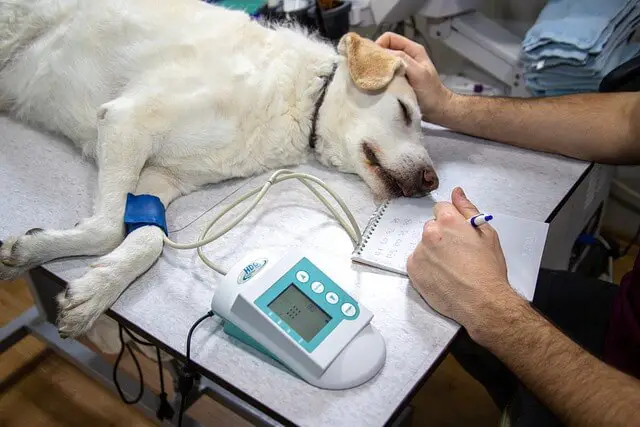Meloxicam For Dogs: Uses, Side Effects & Warnings
29.11.2020.
Is there anything worse than when our beloved puppy is in pain ad we can’t do anything to help them? Luckily, there is a medication called Meloxicam that is specially made for dogs. This drug is usually prescribed to dogs suffering from inflammation and reducing pain from conditions like osteoarthritis.
Meloxicam is better known by the name Metacam, which is actually a brand name. Like with all other medications, you should never self-medicate and always ask your vet for advice before you decide to get your dog on any painkillers.
We will help inform you about Meloxicam and what it can do for your dog, what to look out for, and what drug administration options there are.
What is Meloxicam?
Meloxicam is a non-steroidal anti-inflammatory drug, or NSAID, for dogs and cats. This drug is prescribed when your pet needs help reducing pain, inflammation, or even when they have a fever that needs to be lowered.
Sometimes, your dog might need surgery, and the recovery process can be painful. In those cases, your vet will prescribe Meloxicam to help your dog battle the post-operative pain. One of the most common cases when vets prescribe Meloxicam for dogs, is when older pups suffer from osteoarthritis. Meloxicam has excellent anti-inflammatory properties that ease your arthritic dog’s life.

How can I give my dog Meloxicam?
The good news is that there are several options for medicating your dog with Meloxicam. Some dogs hate pills, and no dog likes to be vaccinated, especially when they are in pain. Meloxicam can be given to your dog in the form of oral liquid, oral spray (only in the US), vaccines, and chewable pills for dogs. For cats, it is only available in the form of oral liquid and injection. Here are some short instructions on how to administer all these forms to your dog;
- Oral Liquid - It is important to shake the bottle well before giving the drug to your dog. Measure the liquid precisely, and give it directly to your dog or mix it with their food.
- Injection - Generally, this is not somehting you should ever do. The vets are usually in charge of vaccinating your dog.
- Oral spray - Shake the bottle before you use it on your dog. The spray is administered inside the dog’s cheek space.
- Tablets - Chewable tablets of Meloxicam should be given directly to your dog, but at the rate your vet tells you. Do not give your dog more medication than the recommended dosage.
This is a potent medication whose effects can be seen relatively quickly. Your dog should feel better within 1 - 2 hours after receiving the drug.
What are the side-effects?
Like any other medication, Meloxicam can cause side-effects. Luckily, there aren’t many cases where serious problems occurred if a dog was taking Meloxicam, but as an owner of a dog that needs this medication, you should know what to look for. Keep an eye out for;
- Bloody stool
- Black stool
- Diarrhea
- Vomiting
- Blood in vomit
- Thirst and increased urination
- Fluid retention (swelling or weight gain)
- Itchiness
- Weight loss
- Changes in behavior
- Stomach ulcers
- Low energy
- Fatigue
It is essential to let your vet know as much information about your dog as possible, like information about allergies, pregnancy, renal, or cardiovascular problems. Like with any other drug, there is a possibility your dog might be allergic to compounds in the medicine, so after the first treatment, keep an eye on signs of allergic reactions such as hives or swelling.
Are there any other things I should be aware of regarding Meloxicam?
In fact, there are. Meloxicam is a powerful drug that should not be used in combination with other NSAIDs (carprofen, etodolac, firocoxib, and aspirin) or corticosteroids (ex. prednisone and dexamethasone). It should not be given to your dog if your dog already has some of these issues;
- Bloody stool or vomit
- Pre-existing kidney or liver conditions
- Loss of appetite
- Dehydrated
- Pregnant
- Lactating
- Breeding dog
- Under 6 months
Tell your vet about your dog’s diet and medical history. It is possible that some supplements might not pair well with this medication, so it would be best that your vet has all the possible information.
Additional warnings
- Keep the medication out of reach of kids.
- Store it in a dark place at room temperature
- Do not use it after the expiration date.
- If you suspect an overdose, contact your vet immediately.
- Ask for a blood test before you give your dog Meloxicam.
World Dog Finder team







Share